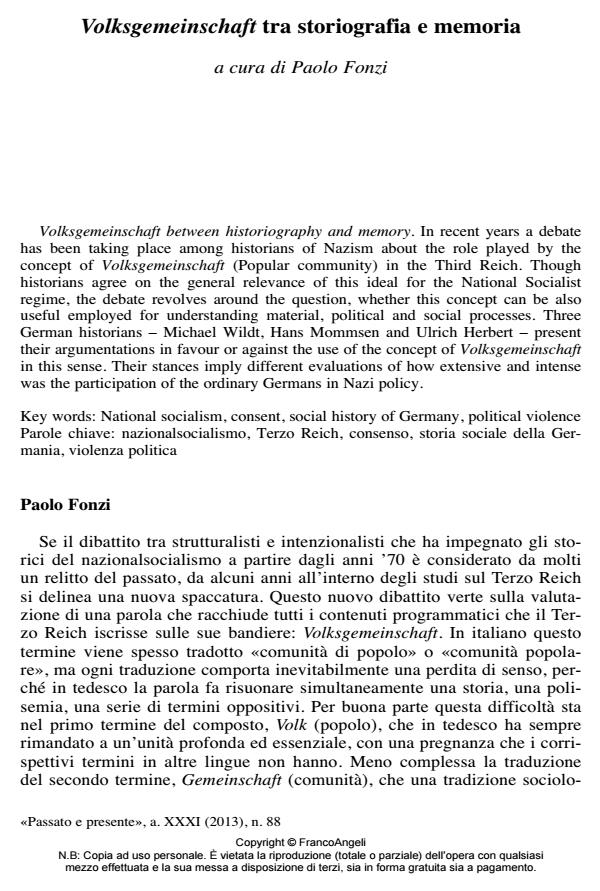Volksgemeinschaft between historiography and memory.
Journal title PASSATO E PRESENTE
Author/s Paolo Fonzi
Publishing Year 2013 Issue 2013/88 Language Italian
Pages 23 P. 13-35 File size 151 KB
DOI 10.3280/PASS2013-088002
DOI is like a bar code for intellectual property: to have more infomation
click here
Below, you can see the article first page
If you want to buy this article in PDF format, you can do it, following the instructions to buy download credits

FrancoAngeli is member of Publishers International Linking Association, Inc (PILA), a not-for-profit association which run the CrossRef service enabling links to and from online scholarly content.
In recent years a debate has been taking place among historians of Nazism about the role played by the concept of Volksgemeinschaft (Popular community) in the Third Reich. Though historians agree on the general relevance of this ideal for the National Socialist regime, the debate revolves around the question, whether this concept can be also useful employed for understanding material, political and social processes. Three German historians - Michael Wildt, Hans Mommsen and Ulrich Herbert - present their argumentations in favour or against the use of the concept of Volksgemeinschaft in this sense. Their stances imply different evaluations of how extensive and intense was the participation of the ordinary Germans in Nazi policy.
Keywords: National socialism, consent, social history of Germany, political violence
Paolo Fonzi, Volksgemeinschaft tra storiografia e memoria in "PASSATO E PRESENTE" 88/2013, pp 13-35, DOI: 10.3280/PASS2013-088002